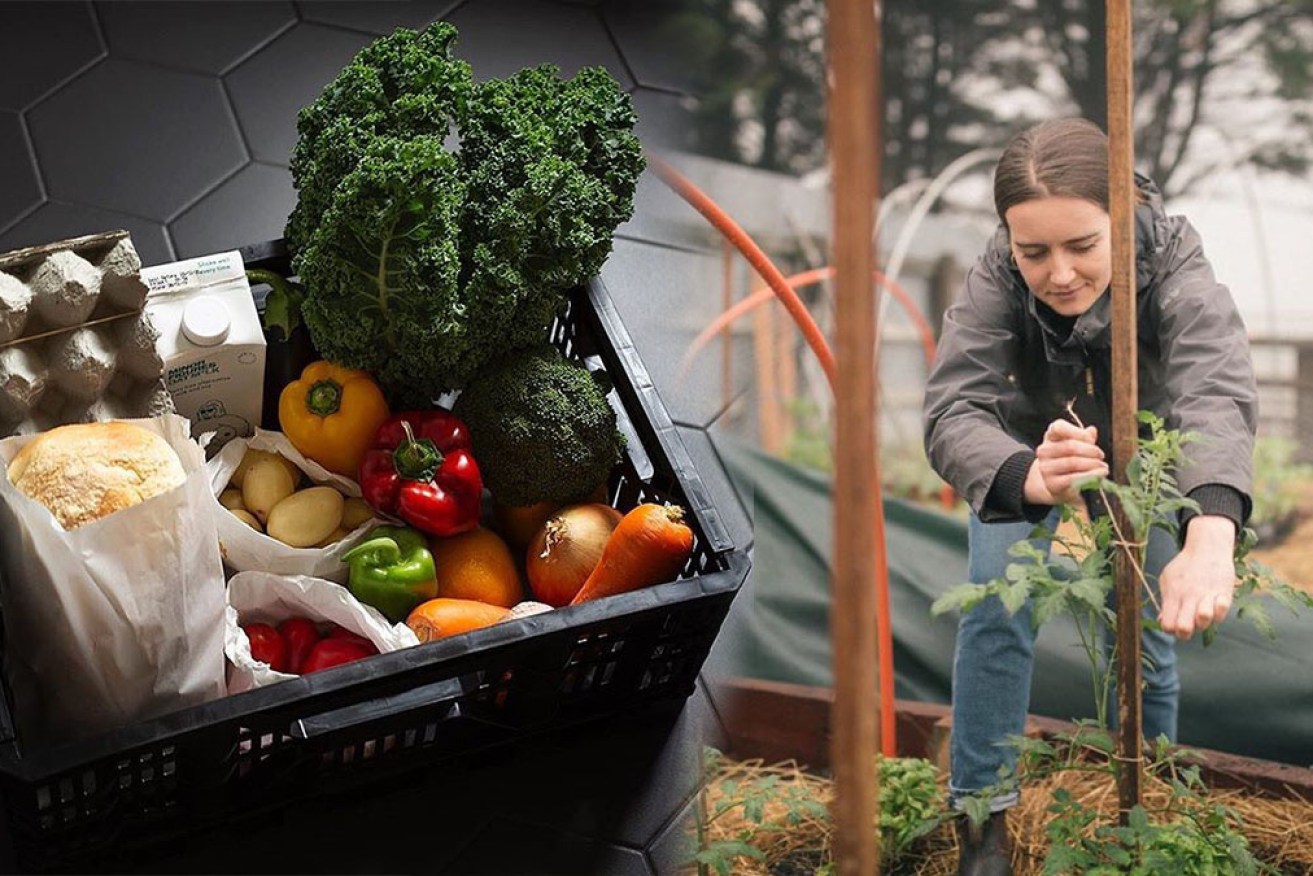Cafes and restaurants transform into grocery stores to survive coronavirus


Cafes and restaurants are transforming into neighbourhood grocers. Photo: Tanaka cafe/The New Daily
Cafe and restaurant owners are transforming their venues into neighbourhood grocers to keep cash trickling into their tills during the coronavirus lockdown.
Prime Minister Scott Morrison last week ordered the hospitality industry to shut its doors to the public in a bid to contain the spread of the virus.
Although the industry was allowed to keep selling food and drinks for takeaway and home delivery, revenue fell off a cliff and venues across the country were forced to axe hundreds of thousands of jobs, with one economist tipping unemployment to reach 17 per cent by Easter.
And so, in a bid to survive the coming recession, many cafe and restaurant owners have transformed their venues into neighbourhood grocers – working with their regular suppliers to put together fresh fruit and vegetable boxes for customers keen to support local businesses.
So it went with Tanaka coffee shop (formerly known as Bloom) in Carlton, in the inner north of Melbourne.
Owners Ruby Clark and Nesbert Kagonda had already hatched plans to offer veggie boxes before the virus took hold in Australia – but the outbreak of the novel coronavirus brought those plans forward.
Sourcing produce from a range of local suppliers and Mr Kagonda’s parents’ farm at Toora, south Gippsland, the cafe sells boxes of fresh produce for customers to pick up from the store, or have delivered to their door if they live on the same block.
Ms Clark said the cafe started offering the service once “supermarkets got really chaotic”.
The first batch of boxes only contained vegetables and were limited to customers who pre-ordered.
But after locals started inquiring about other staples, the cafe expanded its list of produce to include bread, milk, eggs, cheese, and meat – part of a gradual transformation into a fully fledged neighbourhood grocer.
‘‘We got really good feedback on all of that, and a lot of people were coming in and kind of expecting to just pick up boxes, not pre-order,’’ Ms Clark told The New Daily.
‘‘So we thought we should just have a constant supply and then maybe shift the whole model into more of a grocer.
‘‘It has been really well received. Everyone’s really excited about the boxes, but also just being able to come by and get little things, like not committing to a $20 box, but just picking up an avocado.’’
Alongside takeaway coffee, the cafe also sells grains and different flowers by weight, and take-home meals by local restaurant Henry Sugar, with individual boxes ranging from $20 (veggies and fruit) to $40 (veggies, fruit, milk, eggs, home-made passata and pickles).
Ms Clark said they also plan to expand their range of locally sourced meat.
“And anything that we’re not using, we’ll just use to make preserves, or in our own baking, as we’re still doing that,” Ms Clark said.
Asked if she was worried about the future of the business, Ms Clark said the cafe should be OK if it maintains the level of trade generated over the past two weeks.
But she said her and her business partner were working hard to keep prices as low as possible as they understood that people’s incomes would soon take a hit.
Elsewhere, many other cafes are taking a similar approach.
Matt ‘Lanis’ Lanigan decided to convert his cafe in South Yarra, in the inner south of Melbourne, into a neighbourhood grocer so that he could keep on as many staff as possible and give something back to his local community.
What was once the Lucky Penny cafe is now temporarily operating as the Lucky Penny Grocery – serving takeaway coffee, frozen take-home meals, and groceries pre-ordered online.
Customers can order groceries online or over the phone and pick up their orders 48 hours later.
The store sells everything from bread and eggs to rice and vegetables, and will deliver food free of charge to anyone with a seniors card.
Although he said he didn’t expect to make any money from the project, Mr Lanigan told The New Daily it would hopefully make life easier for locals and help him rebuild his business once the virus has been contained.
‘‘We’re doing wholesale price plus 30 per cent to cover wages, so it’s really a community service rather than a commercial service. We’re not really going to make any money,’’ Mr Lanigan said.
‘‘The driving factor behind this is keeping my team employed, delivering a community service for the necessities and you know, providing some kind of support and connection.’’








